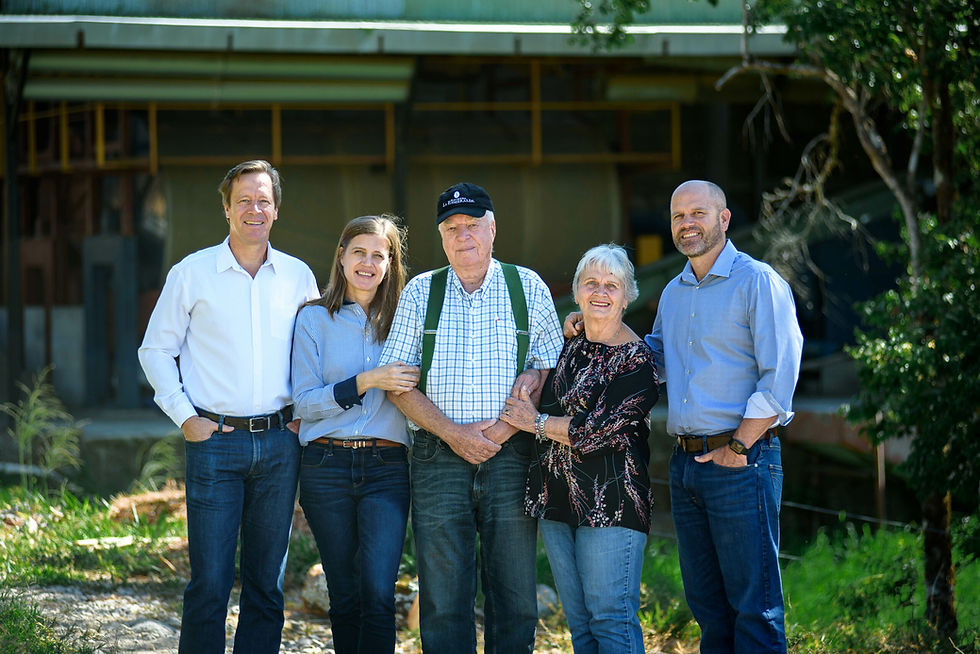DO NOT ACCEPT BITTER TASTING COFFEE
- Om Gajjar
- Apr 9, 2025
- 2 min read

Bitterness in coffee often gets a bad reputation. Most people take one sip of an overly bitter cup and assume coffee is just meant to taste that way—harsh, burnt, and almost medicinal. But bitterness isn’t inherently bad. In fact, a touch of it is essential for balance. The real question is: when does bitterness enhance your coffee, and when does it ruin it?
OVER-EXTRACTING - BREWING TOO LONG OR TOO FINE
If your coffee grounds are too fine or your brewing time is too long, too many bitter compounds get pulled out. Instead of a balanced cup, you end up with a harsh, lingering bitterness.
Fix: Adjust your grind size (slightly coarser) and brew time to ensure proper extraction.
DARK ROASTS - THE BURNT CULPRIT
Darker roasts tend to be more bitter because the longer roasting process breaks down complex sugars and acids, leaving behind bitter carbonized compounds. If your coffee tastes overwhelmingly bitter, you might be dealing with an over-roasted batch.
Fix: Try a lighter or medium roast for more sweetness and complexity.
STALE BEANS - OXIDATION RUINS EVERYTHING
Coffee is a fresh product. Once roasted, beans start losing their volatile oils and flavors due to oxidation. Stale beans taste flat, dull, and sometimes bitter.
Fix: Buy freshly roasted beans in small batches and store them in an airtight container away from heat and light.
WRONG BREWING TEMPRATURE - SCALDING YOUR COFFEE
Brewing with water that’s too hot (above 96°C) can scorch the grounds and release excessive bitter compounds.
Fix: Keep your water temperature between 90°C and 96°C for optimal extraction.
POOR - QULAITY BEANS - INFERIOR COFFEE TASTES WORSE
Low-grade Robusta beans contain more bitter compounds than high-quality Arabica beans. Cheap, mass-produced coffee often uses Robusta for its caffeine content, but at the cost of flavor.
Fix: Choose high-quality, single-origin Arabica beans for a naturally sweeter and more balanced profile.
EMBRACING THE RIGHT KIND OF BITTERNESS
Bitterness isn’t the enemy—it’s part of coffee’s complexity. The best coffees have a balanced bitterness, working in harmony with acidity and sweetness. Think of the pleasant, chocolatey bitterness in a well-brewed espresso or the deep, rich notes in a perfectly extracted French press.
WANT TO DEEPEN YOUR COFFEE KNOWLEDGE?
"The Coffee Brewing Handbook" by Scott Rao – A great read for understanding extraction principles.
"Coffee: A Comprehensive Guide to the Bean, the Beverage, and the Industry" by Robert Thurston – A deep dive into coffee chemistry and roasting.
Coffee Bros: Why Your Coffee Tastes Bitter – A practical guide to troubleshooting bitterness.
James Hoffmann’s YouTube Channel – A goldmine for coffee science and brewing techniques.
At Vernac Coffee Collective, we believe in celebrating coffee’s natural flavors—without unnecessary bitterness. If your coffee tastes burnt and bitter, something’s off. Fix it, and experience coffee the way it’s meant to be.


very informative! thanks for this! :)